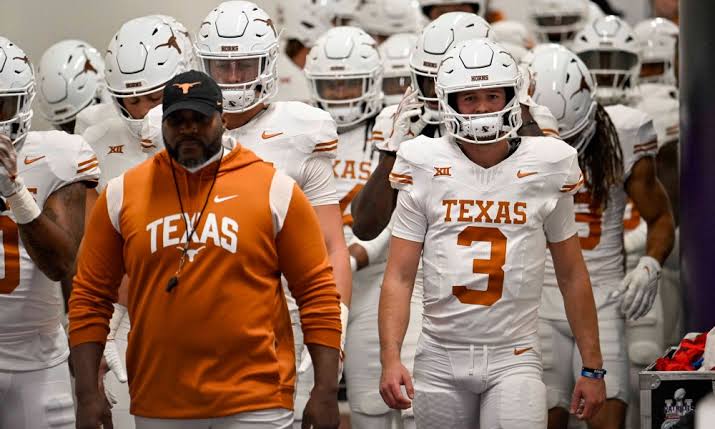
In the world of college football, few teams have as passionate a fanbase as the Texas Longhorns. However, following a recent tough loss, a wave of controversy erupted when some fans’ reactions were described as coming from a third-world universe. This phrase, which typically carries a derogatory connotation, has sparked intense discussions about sportsmanship, fan behavior, and the cultural implications of such language in the context of American college athletics.
The Incident
The Longhorns faced a heart-wrenching defeat against a rival team, igniting a frenzy among fans. Social media exploded with outrage, with some supporters going so far as to express their displeasure through violent outbursts and aggressive confrontations. Videos emerged of fans throwing objects, yelling profanities, and engaging in heated arguments, which led to a wave of criticism from commentators and analysts alike.
In the aftermath of the loss, several media outlets and commentators labeled the behavior of certain fans as reminiscent of a third-world universe, suggesting that such actions were not only primitive but also indicative of a broader issue within sports culture. This characterization raised eyebrows and ignited a fierce debate about the appropriateness of such terminology.
Cultural Implications
The use of the phrase third-world universe to describe the behavior of Texas Longhorns fans is troubling on multiple fronts. Firstly, it perpetuates stereotypes about people from developing nations, implying that certain behaviors are inherently linked to poverty or lack of education. This is not only inaccurate but also diminishes the diverse experiences and cultures of people living in those regions.
Moreover, labeling fan behavior in such a derogatory manner oversimplifies a complex issue. Sports fandom can evoke intense emotions, and while some reactions may cross the line into unacceptable behavior, it is crucial to recognize the societal factors contributing to these outbursts. The pressure to win, the immense pride associated with the Longhorns’ legacy, and the atmosphere of rivalry can all lead to irrational behavior.
The Psychology of Fandom
Understanding fan behavior requires delving into the psychology of sports. For many, college football is not just a pastime; it is a core part of their identity. The Longhorns symbolize pride, tradition, and community, and when they lose, that sense of identity can feel threatened. This often manifests in extreme emotional responses. Psychologists suggest that such reactions are a form of catharsis, an emotional release that can sometimes spiral out of control.
The internet has exacerbated these tendencies. Social media platforms amplify reactions, allowing fans to vent their frustrations in public forums where the stakes feel higher. When fans see others expressing anger or frustration, it can create a snowball effect, leading to increasingly extreme behaviors.
Media Responsibility
The media’s role in this situation cannot be overlooked. While it is essential to hold fans accountable for their behavior, using inflammatory language to describe them serves no constructive purpose. The media has a responsibility to foster discussions around sportsmanship, the emotional impact of losses, and how fans can express their feelings in healthier ways.
Instead of framing fan behavior in derogatory terms, media outlets should focus on promoting positive engagement within fan communities. Encouraging dialogue about how to handle losses gracefully and respectfully could contribute to a more positive atmosphere surrounding college football.
A Call for Reflection
In the wake of the controversy, both fans and commentators must take a step back and reflect on their actions and words. It is easy to succumb to the heat of the moment, but labeling the behavior of fans in a derogatory manner only serves to widen the divide between groups.
Ultimately, the Texas Longhorns’ fanbase has the potential to set an example of sportsmanship and respect, even in the face of defeat. It is vital to channel the passion and pride associated with being a Longhorn into positive behaviors that honor the team and its legacy.
Conclusion
The events following the Texas Longhorns’ recent loss are a microcosm of a larger conversation about sports culture, fan behavior, and societal expectations. By addressing the underlying issues and reframing the narrative, fans and media alike can contribute to a more positive and respectful environment in college sports. It is time to move beyond derogatory labels and strive for a culture of understanding and accountability in the world of fandom.






